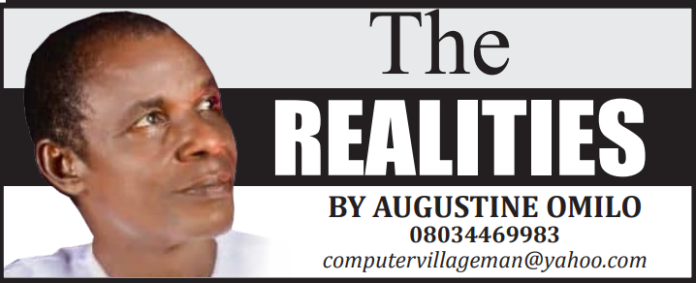It has become very difficult to capture the real challenges facing Nigeria. The same applies to the solutions. This is probably why politicians view the issues from different perspectives. And once they take any stand, their followers follow without subjecting anything to test.The only interestingly good thing is that all citizens agree that the nation has many economic growth-limiting myriad of problems.
The plight of the country, her leaders and citizens appear to have been in the mind of Milton Friedman,(July 31, 1912 – November 16, 2006), the American economist and statistician who received the 1976 Nobel Memorial Prize in Economic Sciences for his research on consumption analysis, monetary history and theory and the complexity of stabilization policy when he said; “The government solution to a problem is usually as bad as the problem.” Though Friedman did not state whether or not his submission applies also to his country, USA, Nigerians who understand the happenings in their native land will eternally be grateful to him for capturing the Nigerian situation.
Agreed, the country has been in a state of economic and political dinosaur since her independence in 1960. But most attempts aimed at resolving the issues often look like scratching them at the surface. The challenges that have kept Nigeria at the level of under-development include indiscipline, tribalism, corruption, poor value allocation system and political desperations amongst others. Many people who blame the economic woes of the nation on her inability to vacate the position of consumption without production failed to understand a few things about the country’s past.
For example, when the economy boomed in the 70s and 80s, what were the products that were made in Nigeria? Unlike what we have presently, music was largely imported. Disco halls were always agog with the music of Bob Marley, Michael Jackson, Cool and the Gang, Peter Torsh, Marvin Gay, Jim Reeves, Kenny Rogers, Ken Lazrous and so on. All these have been replaced by the likes of Davido, Psquare, Bonaboy, Majek Fashek, Daddy Shocky, Onyeka Onwuenu and Mobad, to mention but a few. Items such as textbooks for schools were equally imported alongside teachers from abroad.
What this means is that indiscipline have continued to drive our economic and social desires that thrive mostly on goods imported into the country with the nation’s hard earned foreign currencies like the American dollars. While it is quite good to appreciate those who heap the economic problems on consumption, we must realise that advanced countries have moved from agricultural revolution to industrial revolution, scientific technology revolution and to artificial intelligence (AI) revolution. The citizens cannot therefore continue to go back and fort on agriculture and other productive areas for answers to the nation’s problems
Corruption has remained “married” to poor value allocation system. Until there is a separation of this “unholy matrimony”, the country may not be able to overcome her backwardness. And wiping out this monster requires fair and equitable distribution of the nation’s wealth. Poverty is the main driving force behind corruption. Without tackling it, fighting corruption will remain an effort in futility. Tribalism is driven by injustice and lack of fairness in the handling of issues that concern every Nigerian such as employment, appointments and distribution of amenities. For these reasons, members of different sections of the country hold their allegiance to their communities before the nation at large. It is responsible for why there is always tribal colour to the nation’s leadership contests. The tide must be stemed before a patriotic atmosphere can be created for all to work together as members of the same country.
Just few days ago, an honorable member of the country’s House of Representatives, Alex Ikwechegh was reported to have manhandled a bolt driver who came to deliver a parcel to him. Investigations show that the law maker never expected an educated responsible fellow to be engaged in taxi driving. He saw his prey as a poor helpless person. This kind of value mindset has driven many young people into crimes with the believe that the country’s men and women only respect people of means, irrespective of the sources of such wealth. All efforts to make laws that could minimise the craving for unexplained wealth by legislators like Ali Ndume have continually been ignored by those in authority.
Meanwhile, for the challenges to be dislodged, it behooves Nigerian leaders to carefully listen to Albert Einstein (14 March 1879 – 18 April 1955), a German theoretical physicist who is widely held as one of the most influential scientists and a receipient of 1921 Nobel Prize in Physics who said; “If I had only one hour to save the world, I would spend fifty-five minutes defining the problem, and only five minutes finding the solution”.


